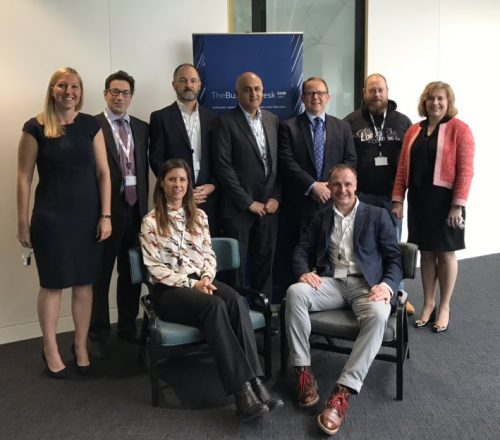Agility and flexibility make family businesses successful across the north

Embedding flexibility and agility into Northern family businesses allows them to be successful and play a vital role in the North’s economy, leaders concluded at a roundtable event.
As part of a roundtable focused on family businesses across the North, businesses owners and leaders said they were quick to seize on opportunities and often embrace a working culture where employees have a “common purpose”.
Ian Beaumont, partner at KPMG, highlighted just how important family-run companies are to the national and regional economies. He said: “Employing 13 million people, 85% of all companies are family businesses.
“And with revenues of £1.7tn, they pay for the NHS in tax. They are massive contributors to the UK and the regional economy.”
The roundtable also heard that family-owned companies were eager to play their role in the Northern Powerhouse initiative. The challenge was to ensure that their voice gets heard, they agreed.
Guy Armitage, managing director the York Handmade Brick Company, which was set up by his father. He believes there are major advantages to being family run.
The business created 300,000 specially designed bricks for the base of The Shard in London, an example, he said, of the flexibility being a family business brings.
He said: “We can take the risk. We can make quick decisions more easily. There is agility to what we do that the big companies don’t have.”
Richard Donner has worked at his family business The Wakefield Shirt Company for over half a century and has no intention of retiring as he approaches 80.
The company has a long history of overseas sales, facing up to challenges along the way. He described being a family business as “so much fun”. He said: “You can be cheeky and take a risk.”
Looking at succession planning he said that the family had bought out family members along the way to keep the structure smaller and manageable.
Polly Staveley, managing director of fourth generation family insurance business TL Dallas, which is celebrating its centenary. She said that succession planning was its biggest challenge. That included matching family skills to the jobs in the company.
Hannah Kendrick, who leads Squire Patton Boggs’ Leeds corporate practice, said managing what the roles in a family business are and who is in the right roles could be a problem. She added: “Managing how these all fit together the jigsaw for the common purpose is really delicate.”
Staveley said her father used the expression “you have to have skin in the game”. She added: “We are not just there for our pay check, it is about pride and longevity.”
The business had begun an employee share scheme to help them also have that skin in the game. “It is trying to share that feeling among the staff so they will feel they are part of the journey as well.”
Andrew Johnson, managing director of Ripon-based Hemingways Marketing, said he regarded himself as a “steward” of the third generation business. He said: “We always put the idea of that spirit of a family business right at the heart of our business. One of our challenges is making sure we retain that as we grow.”
He added: “One of the joys of a family business is you can see a trend, follow your nose and see what comes from it.”
Chris Black, managing director of jukebox manufacturer Sound Leisure, said being in a family business was about looking how to carry it on for the next generation. Being a family business was a strong selling point for future employees and good for the workforce, he reflected.
“There is passion there, 100%,” he added.
Ian Beaumont, partner at KPMG, described family business succession as a “journey”. He said: “Most family businesses don’t fail because of succession, they tend to fail because of that loss of common purpose.”
When it comes to the Northern Powerhouse , the leaders called for there to be more interaction with family businesses as they contribute so much to the economy. Staveley said: “Politicians talking should be talking to family businesses in particular because they make up some of the largest employers in the region about what we need, what is important.”
Chris Black added: “We are being sold a dream but no-one in Westminster wants to fulfil it.”
Ian Beaumont believes the challenge is working to ensure that the voice of SMEs in the region gets heard.
The group also discussed succession planning and access to funds as being important when considering growth opportunities.
Beaumont, whose Leeds office hosted the event, said: “One of the things family businesses do struggle with at times is access to finance.
“A lot of private equity funders struggle to see where they get their ultimate end return on capital, because family businesses generally don’t sell.”
Naveen Ahmed, founder of Parklane Properties, believes these are challenging times for family-run companies but added that running a family business was extremely rewarding . He said he felt smaller firms received a lack of support and that big businesses were dominating. “It’s not an equal playing field,” he said.
John Slumbers, operations director at Huddersfield-based Lord’s Brewing Co, a first-generation family business, said he didn’t have any trust in banks. “They just want to invest in big business,” he said.
“The money we have got has come from the private sector. When we went to banks at the start they literally laughed at us, but now they want to talk to us.”
The full family business discussion will be published as part of a dedicated family business email later in the State of the Region project.








